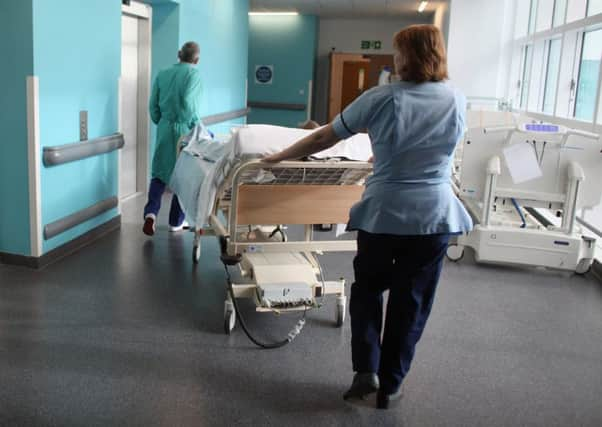Watchdog chief says major change key to NHS turnaround


Dame Denise Coia, chairwoman of Healthcare Improvement Scotland (HIS), said the way services are run across Scotland would need to change.
Giving evidence to Holyrood’s Health and Sports Committee, she said: “I think the important thing to get at with targets is if we keep doing the same things that we do at the moment, the way we run acute care and chronic care, we are going to continue failing.
Advertisement
Hide AdAdvertisement
Hide Ad“We have to change the way we run healthcare in Scotland and I think that’s part of the work we are beginning to do at the moment.
“The NHS and social care in Scotland has got a finite budget that is really problematic. We’re going to have to decide in Scotland, and it’s a public debate, about how much we are going to spend on state-of-the-art acute care and how much we are going to have to spend on chronic care that shouldn’t be in hospital and should be out in communities.
“What I would like to see in Scotland is a far more honest debate about do we want to spend the money more on chronic care or do we want to continue to have the seriously hi-tech acute care, because it just gets more and more expensive.”
She was responding to concerns raised by committee convener Neil Findlay, who asked if HIS is succeeding in its mission to improve healthcare since Audit Scotland reported last year that NHS Scotland failed to meet seven out of eight key national performance targets, such as waiting times.
Mr Findlay also questioned Dame Denise on whether she has seen cuts to health and social care services in Scotland due to funding.
She said focusing on cuts risked going down a “negative rabbit hole” and refused to discuss whether they were happening.
She added: “It’s not about cuts to services, it’s about people actually shifting resource. In fact in some areas it’s about taking some money out of areas and putting not even the whole amount back.
“What we need to say is we can do a lot better with the money we actually have at the moment.”
Advertisement
Hide AdAdvertisement
Hide AdDame Coia’s comments came as new figures showed that Scotland’s accident and emergency (A&E) recorded their strongest performance so far this year during the week ending 22 January.
The data shows that 92.8 per cent of the 23,560 patients who attended A&E were seen and either admitted, transferred or discharged within four hours.
The figure is an improvement on the 87.9 per cent and 90.1 per cent recorded in the first two weeks of the year, but below the Scottish Government target for 95 per cent of cases to be dealt with in that time.
A total of 188 (0.8 per cent) patients spent more than eight hours in A&E, while 26 people (0.1 per cent) waited for more than 12 hours.
The target was missed in nine health boards, with NHS Greater Glasgow and Clyde recording the poorest performance at 89.2 per cent.
Scotland’s newest hospital, the £842 million Queen Elizabeth University Hospital in Glasgow, was again the worst performing site.
At its A&E unit, 78.7 per cent of patients were seen within the required time, up from a low of 74.8 per cent in the first week of the year.